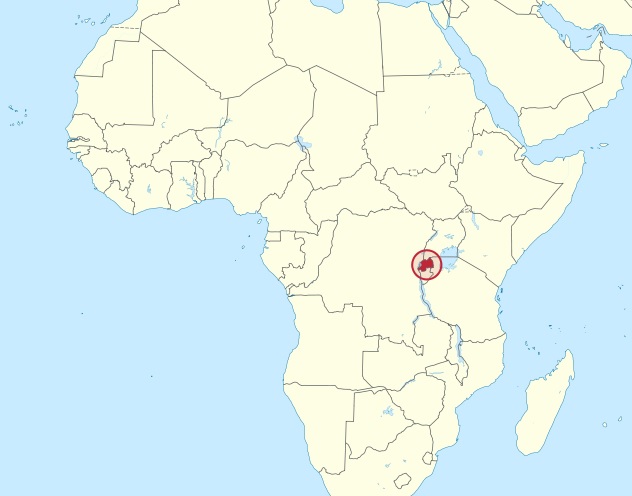It is among the ten smallest countries in Africa Rwanda For some time now, it has developed the ambition to take on a leading economic role in the Great Lakes region, and to explore the international influences of building a real economic ‘hub’ projected primarily in the health and aviation sectors. Although it was officially resolved, persistent disagreements with Paris over its responsibilities in the 1994 genocide prompted President Paul Kagame, in power since 2000, to withdraw from the French orbit in order to bring Kigali closer to the opportunities of the Anglo-Saxon world: a choice made Its approval has since joined the Commonwealth, the second country after Mozambique to be admitted to the organization without a previous association with the United Kingdom. A small but growing market with nearly 13 million people and a GDP of $10.3 billion, Rwanda has grown decisively from the late 1990s to today, having recorded a GDP increase in 2019 of more than 9% thanks to the performance of construction services, agriculture and Resisting the setback of the Covid epidemic: After contracting by 3.4% in 2020, the Rwandan economy actually recovered to 10.9% in 2021 and confirmed a growth of 6% in the current year, indicating the growth of the country’s ambition to position itself at the regional level and liberate Africa from some dependencies International, health first.
After the pandemic emergency, Kagame was one of the strongest advocates for a domestic vaccine production policy, to overcome delays in delivery from the West and to create a health “centre” in anticipation of new epidemics. And so his management worked to host BioNTech’s first African plant in Rwanda to produce Pfizer mRna vaccines — a project the German company is also replicating in Senegal, Ghana and South Africa — as well as endorsing patent suspensions: Kagame suggested that the opening ceremony was the solution to the global health crisis.Promote and transfer technology to African pharmaceutical industries“even he”They can produce their own medicines and vaccinesA vision, the Rwandan vision, underpinned by a certain optimism – regional experts predict that by 2040 Africa will be able to produce 60% of its vaccines locally – which has been encouraged by France, on the occasion of the Paris Conference on Africa in 2021, and subsequently by the African Union and the World Health Organization with Hopeful, albeit unlikely, of eliminating intellectual property rights for vaccines in the future, Kagame noted that the African Union is also working to create an African Medicines Agency (AMA), to be involved. Standards will be established among the various regulatory bodies.
The second major challenge for Rwanda concerns joining the Single African Air Transport Market (SAATM), a project promoted by the African Union in the wake of the African Continental Free Trade Area (AfCfta), the latter in force since January. 2020 but with few applications at the national level. Rwanda will participate in the Saatm pilot project with 17 other countries – Cape Verde, Cameroon, Ethiopia, Gabon, Ghana, Ivory Coast, Kenya, Morocco, Mozambique, Nigeria, Niger, Namibia, Rwanda, Senegal, South Africa, Togo and Zambia – with the aim of promoting freedom of movement for African airlines from one country to another. The project, a landlocked country, is an important resource for Rwanda, because until now the small economy in the Great Lakes region had to share management of its airspace with Tanzania and aim to regain control. By investing in the single air market project, Rwanda is strengthening its ambitions to become a regional aviation hub, and is betting on Qatar as an ally, whose role is currently crucial to the expansion of the national airline, Rwanda. In this regard, RwandAir and Qatar Airways announced on October 5, 2021 the signing of a comprehensive “code share” agreement that allows RwandAir to reach more than 65 destinations in countries in Africa and the rest of the world, based on which from December of the year to launch RwandAir has direct flights between Kigali and Doha. According to the regional press, RwandAir is at the forefront of the single air market project in all aspects, having already managed to reach 22 countries with its routes today, 17 of which are in Africa and the rest in Europe, Asia and the Middle East. the East. the East. guidance.
If in recent years RwandAir has become one of the fastest growing airlines in Africa, the appointment of its CEO Yvonne McCullough as President of the International Air Transport Association (IATA) has given an important boost to the SAATM project and the role Rwanda plays in it. He. She. Thanks to a project funded by the World Bank, Rwanda, Tanzania and Uganda recently announced that they will link their financial exchanges electronically, making it possible to operate between these countries as if there really was one market, at the same time that McCullough confirmed that new negotiations are underway between Rwanda and Qatar to strengthen the links. between the two companies. According to rumors, the Emirati company should acquire a 49% stake in RwandAir, an investment estimated by the US Department of Transportation to be no less than US$28 million.
Rwanda has also expressed interest in the space world, a sector that is often far from the African market. On the occasion of the recent US-Africa summit in Washington, Kigali joined the Artemis space exploration programme, in which Italy is also a participant. The first African country to join a NASA program with Nigeria – also a signatory -, Rwanda surprisingly joins a project launched by Washington and eight other countries aimed at strengthening bilateral and multilateral space cooperation between the signatories, which follows the principles that guide them. Civilian space activities, including public disclosure of scientific data, responsible debris disposal, registration of space objects, and development and implementation of interoperability standards.

“Wannabe internet buff. Future teen idol. Hardcore zombie guru. Gamer. Avid creator. Entrepreneur. Bacon ninja.”

